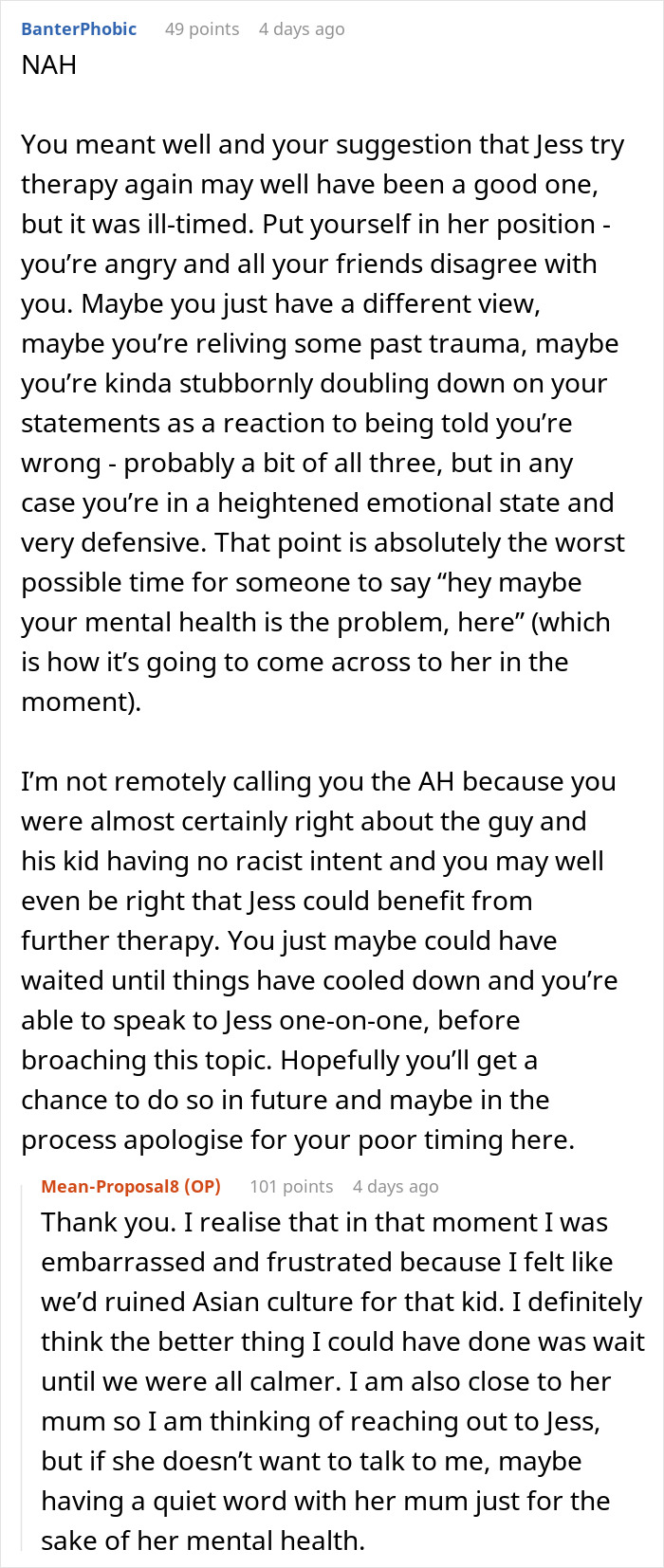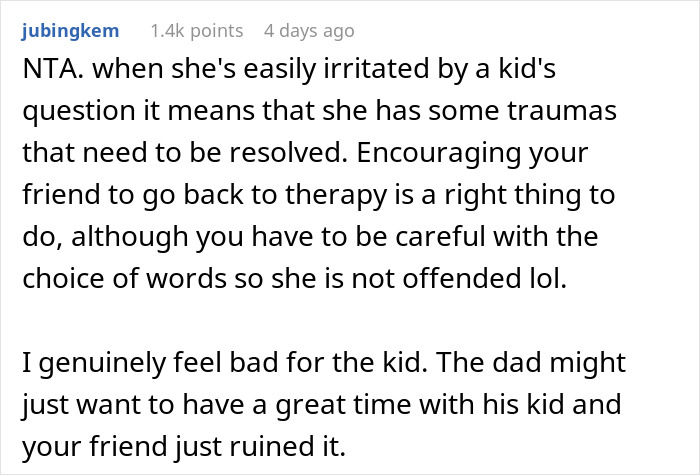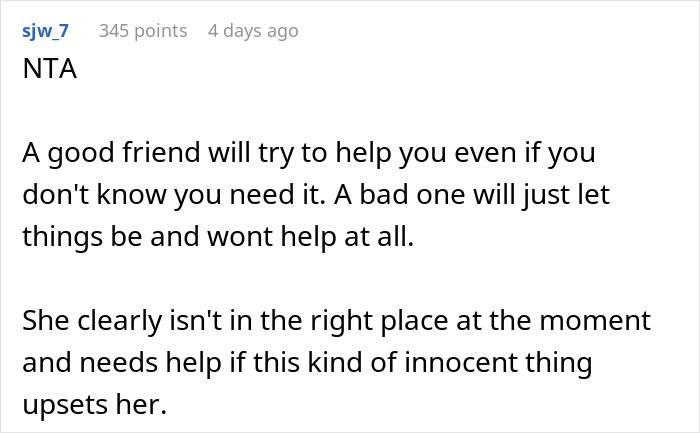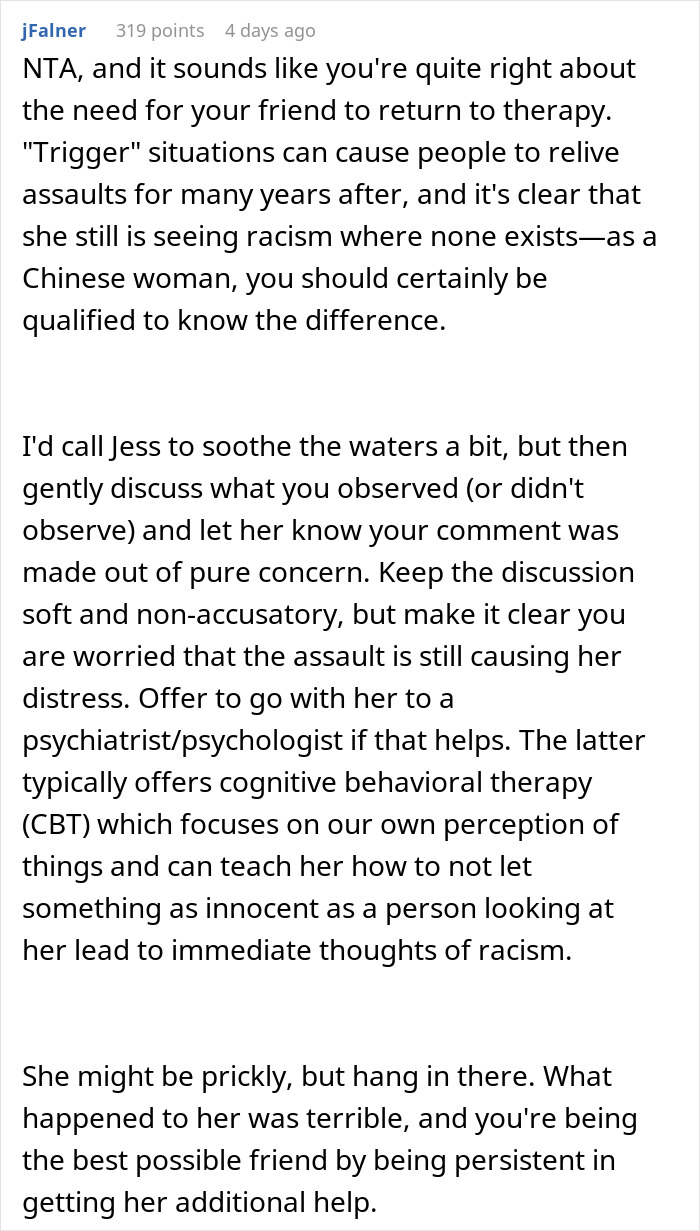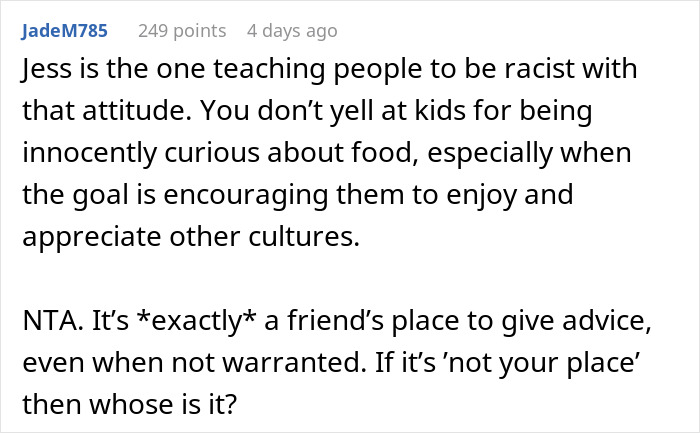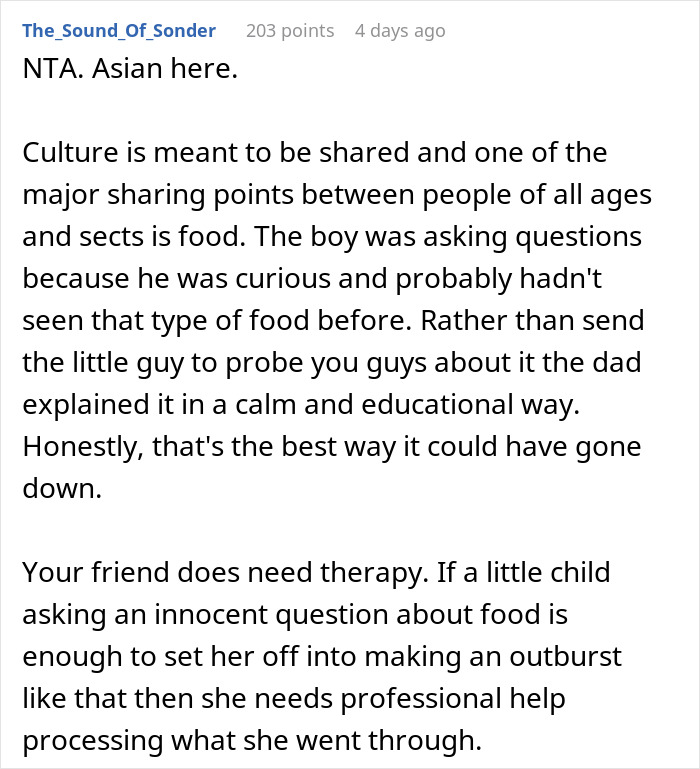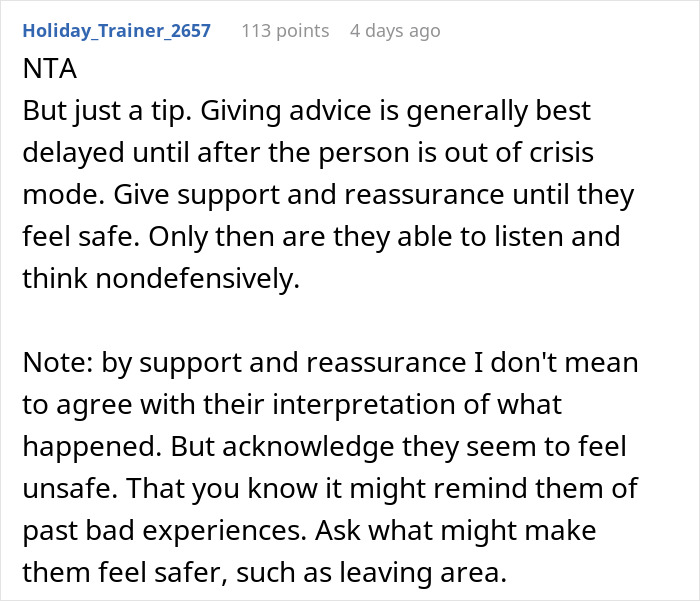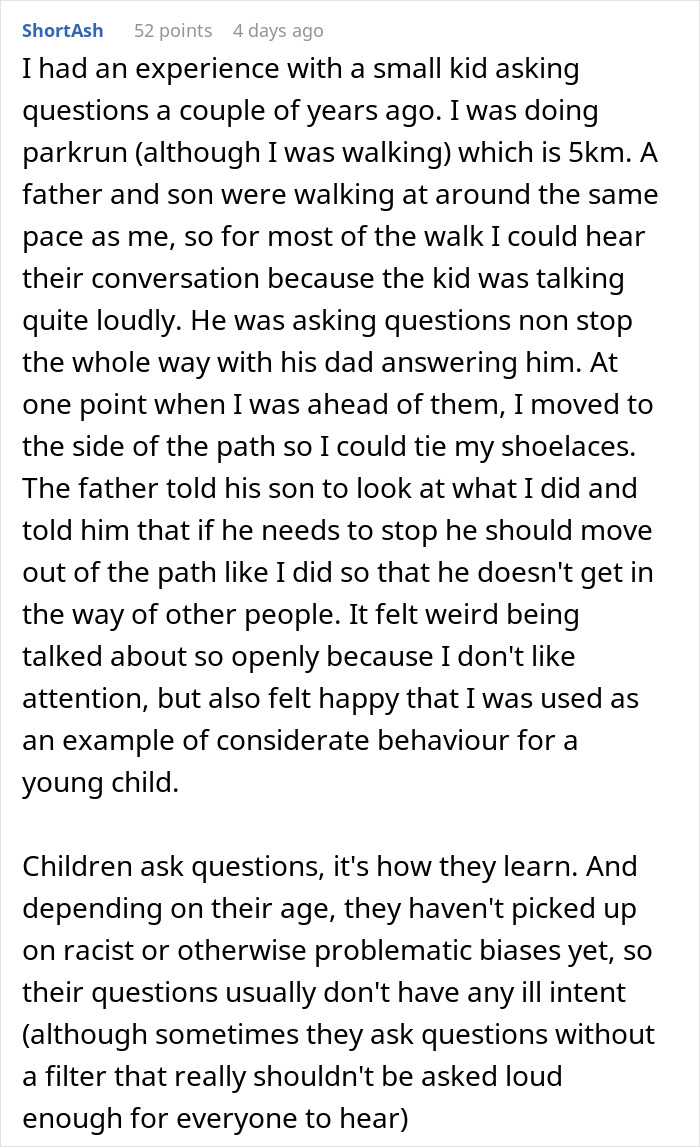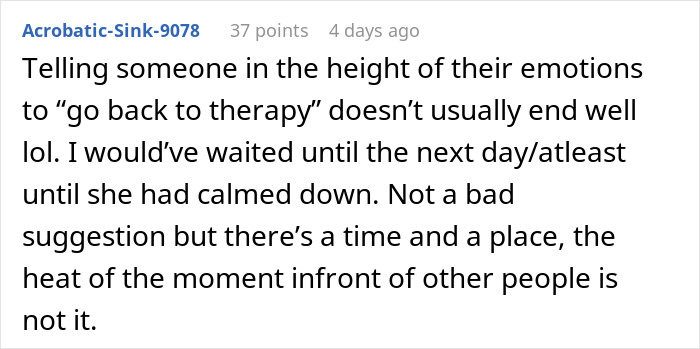Restaurants can be overwhelming, especially for a highly sensitive person. They tend to process everything much more deeply, including feelings, thoughts, details, and physical sensations. So when others are experiencing their surroundings at a volume of 5, they are blasted with a loudness of 10. And in these noisy and jam-packed spaces, something is bound to go wrong.
For redditor Mean-Proposal8’s friend Jess, it was a curious kid who pushed her over the edge. Unexpectedly, she stood up, insulted the child and his father, and walked out. Trying to console her, Mean-Proposal8 suggested she go back to therapy, as she has dealt with similar difficulties in the past. In return, Jess called her a bad friend and left.
Noisy and busy restaurants can be overwhelming

Image credits: cottonbro studio (not the actual photo)
For Jess, it was a little kid who pushed her over the edge


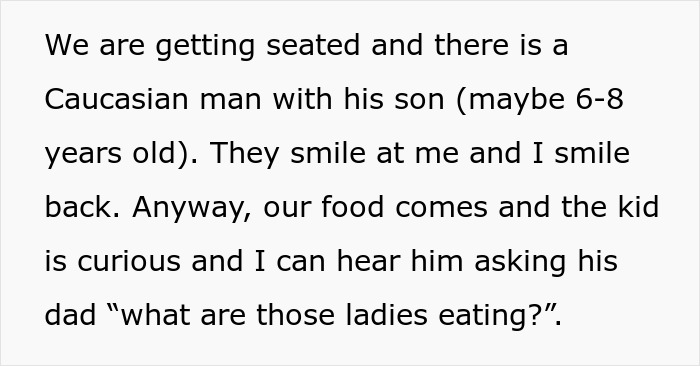


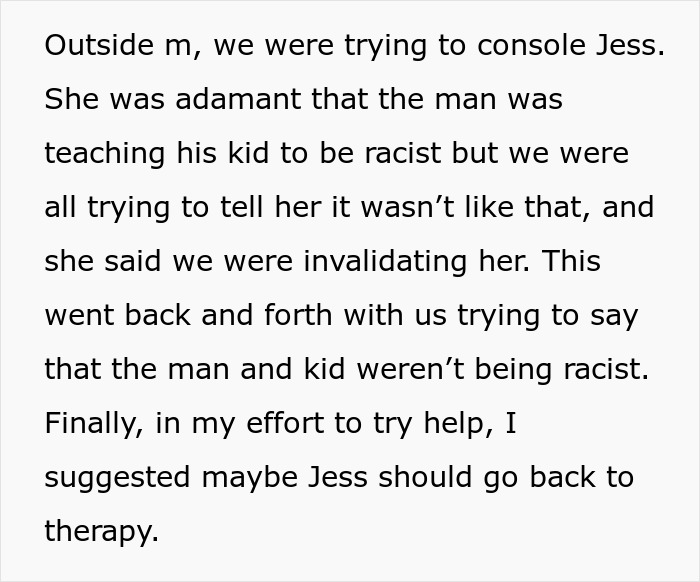
Image credits: meijii (not the actual photo)


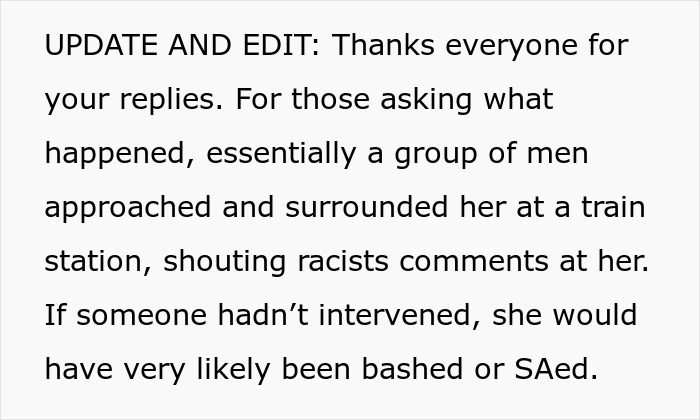
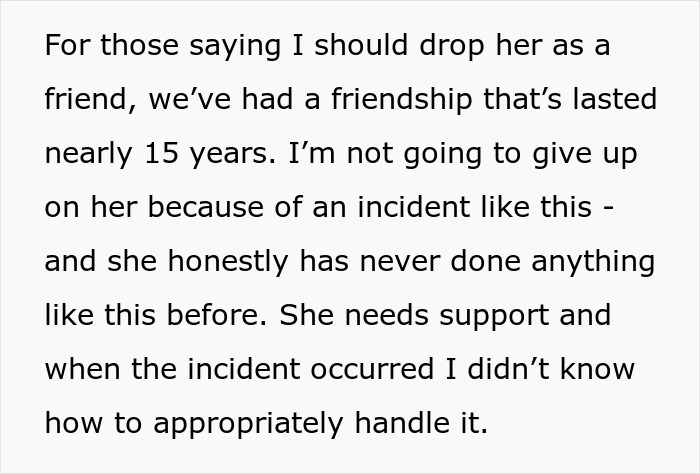
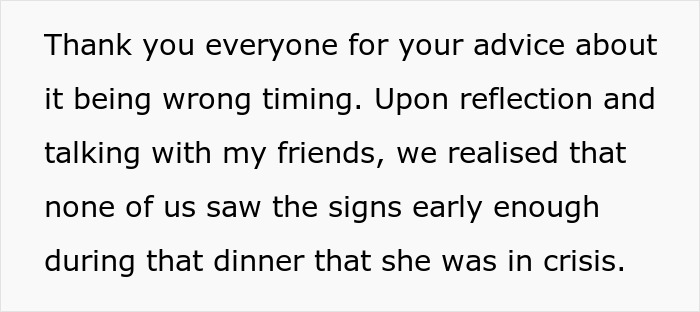
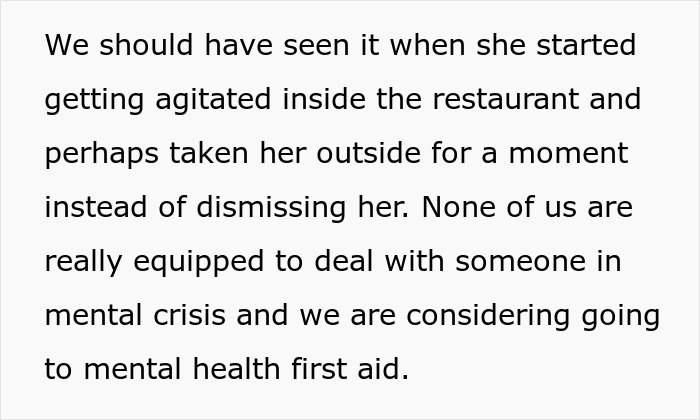
Image credits: RDNE Stock project (not the actual photo)
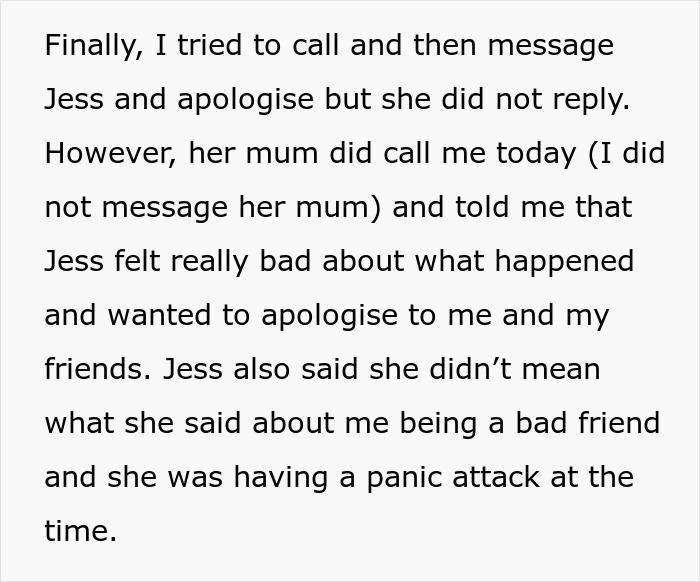
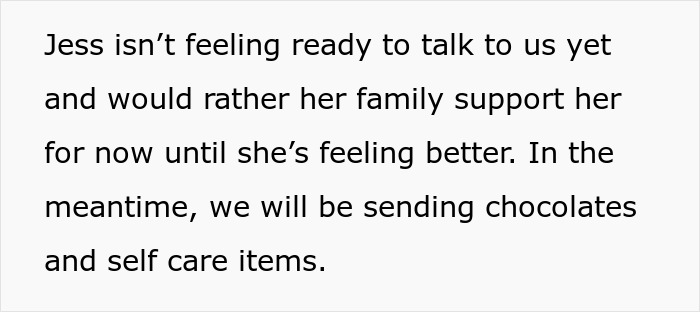
Image source: Mean-Proposal8
Helping someone in state of stress, anxiety or overload

Image credits: Alena Darmel (not the qactual photo)
Some of us aren’t really equipped with support mechanisms when it comes to dealing with overwhelmed, panicky, or anxious people. What helps each person can differ, but there are a few techniques that typically come in handy in such situations.
Firstly, it’s important to identify the warning signs when someone is getting stressed. It’s often easier to spot this in others than in ourselves, so those who struggle may push themselves to persevere until they can’t cope. Some physical symptoms can include restlessness, shortness of breath, sweating, or lightheadedness.
If any of these signs are visible, just taking a minute to ask them if they are feeling okay can make a big difference. It lets them know that you are there for them and support them. It’s not always about finding a solution either; sometimes it helps just to listen to what they have to say so they don’t feel alone.
People who struggle with this often tend to have their own go-to coping mechanisms they know will help the most. Knowing about them in advance can offer assistance when they feel overwhelmed or anxious. However, during it, it’s important to remain cool and ask how they can be supported. The answer can be short or curt because of their stress response, but trying to remain and not take it personally can help out.
When a person is feeling overwhelmed, it can be difficult for them to see the light at the end of the tunnel. Therefore, reminding and reassuring them that this will soon be over and things will improve should help put things in perspective. This also helps to keep them in the present, which is part of mindfulness practice. Holding their hand (if they’re okay with it), giving them a textured object to feel, or encouraging them to move can ground them.
Mindful breathing exercises are also proven to calm people down in stressful situations. Reminding them to inhale and exhale and asking if they want to leave the room can reduce the anxiety. In addition, a soothing, familiar voice can assist some people, but repeatedly saying “Don’t worry” or “Are you alright” may overwhelm them even more, as they might believe they’re doing something wrong by not being okay. Of course, it’s all with the best of intentions, but giving advice or minimizing their experience won’t be beneficial in the moment.
Such situations can be as confusing as they are scary, and they generally can’t be predicted. So offering empathy and accepting their distress as real and significant is far more important than trying to understand why it’s happening.
Majority of commenters didn’t see anything wrong with the author’s actions

